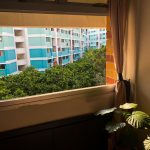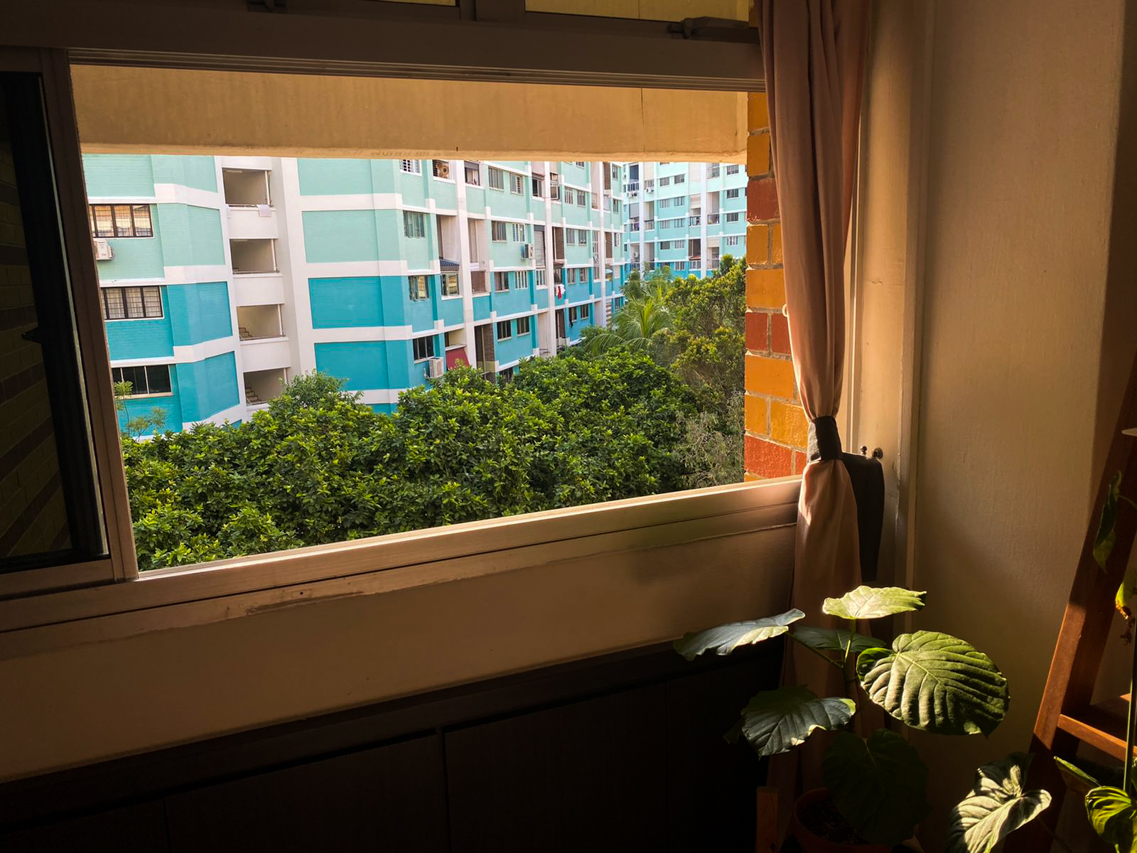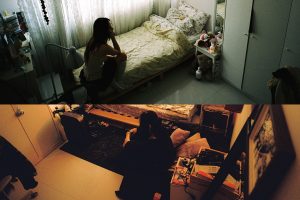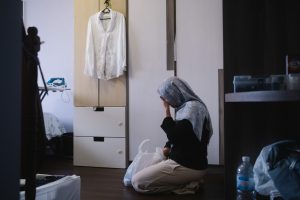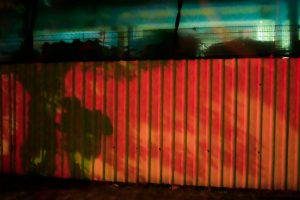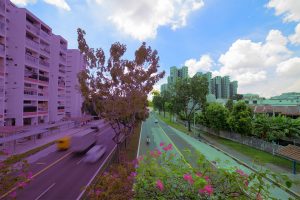All images contributed by interviewees, with direction from RICE’s photo department. Responses have been edited for length and clarity.
Over the last week, my colleague Zachary and I reached out to ten people all around Singapore, from all walks of life. We asked them to share a view from a window they spend a lot of time looking out of, and what’s been on their mind since Phase 2 (HA) kicked in.
Had their routines changed? How would they describe their mood at this time? Now that we’ve mostly moved our lives indoors, how do they feel when they look outside?
The responses we got were thoughtful, conflicted, immediately relatable. Some talked about their anxieties; others shared what they’d been doing to pass the time. Often, they were as much about looking inward, or wondering what lies ahead, as looking out. (Many, too, alluded to the difference between looking and really seeing—being present, “standing still and learning to be astonished.”)
Put together, we hope they bring a shared experience into view, and—in some small way—soothe your ache for the world outside by glimpsing it through someone else’s eyes.
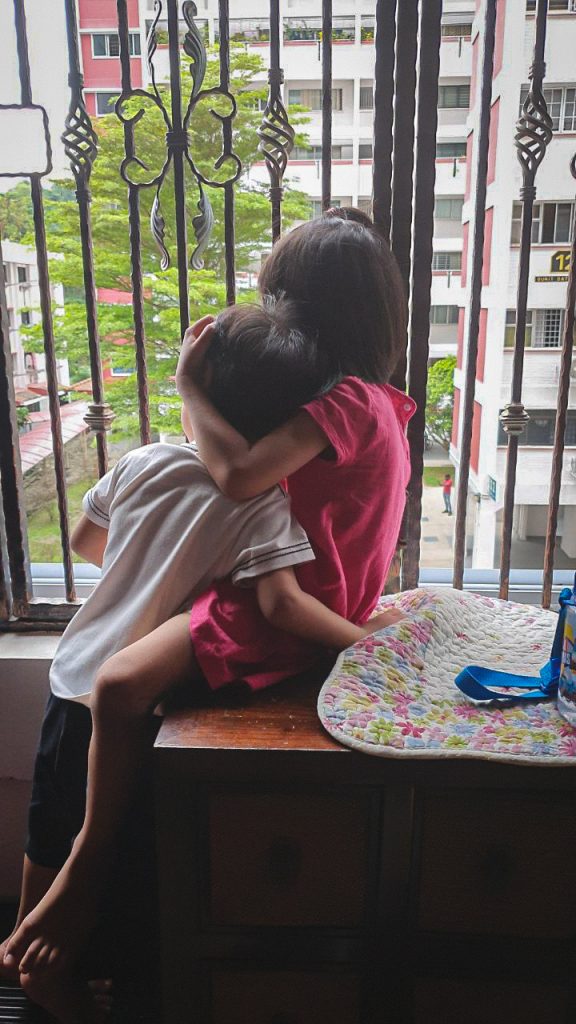
It’s amazing how quickly children learn things. One of the first ‘big’ words my son learnt was “coronavirus” (sadly enough). Unfortunately, they’ve also quickly learnt that this same coronavirus has a tangible impact on their daily lives.
Before Covid, we led quite active lives as a family with young children. We’d go swimming, visit the park, go for picnics and plane-spotting. Now they’re mostly cooped up at home, but they’ve been surprisingly sanguine about it, choosing instead to make even more of a mess in the house than usual. They’re quite happy to spend their time rearranging their bookshelves and taking apart their toys.
They’ve even learnt to say, “We need to stay at home, because of the coronavirus!” My husband and I, as parents, are the ones who feel as though their development is somehow being stalled and their enjoyment limited. Maybe we’re overthinking things, but when we had our children, we didn’t foresee that we’d be spending so much time at home with them, instead of being out and about.
Before Covid, I was already wondering how I would guide my children in a world that was becoming unfamiliar to an old fogey like me. Covid will transform that world even further. Will we as parents be able to provide the necessary guidance? Will we be able to keep up? Such thoughts keep me up at night, sometimes.
— Raaha is a freelance writer and editor who used to work in education. She took this photo a while back at her parents’ home in Bukit Batok. While it’s no longer her usual view, “I spent most of my youth growing up in that house. And my children spend a lot of time there as well, so it’s a view they are growing up with too.”
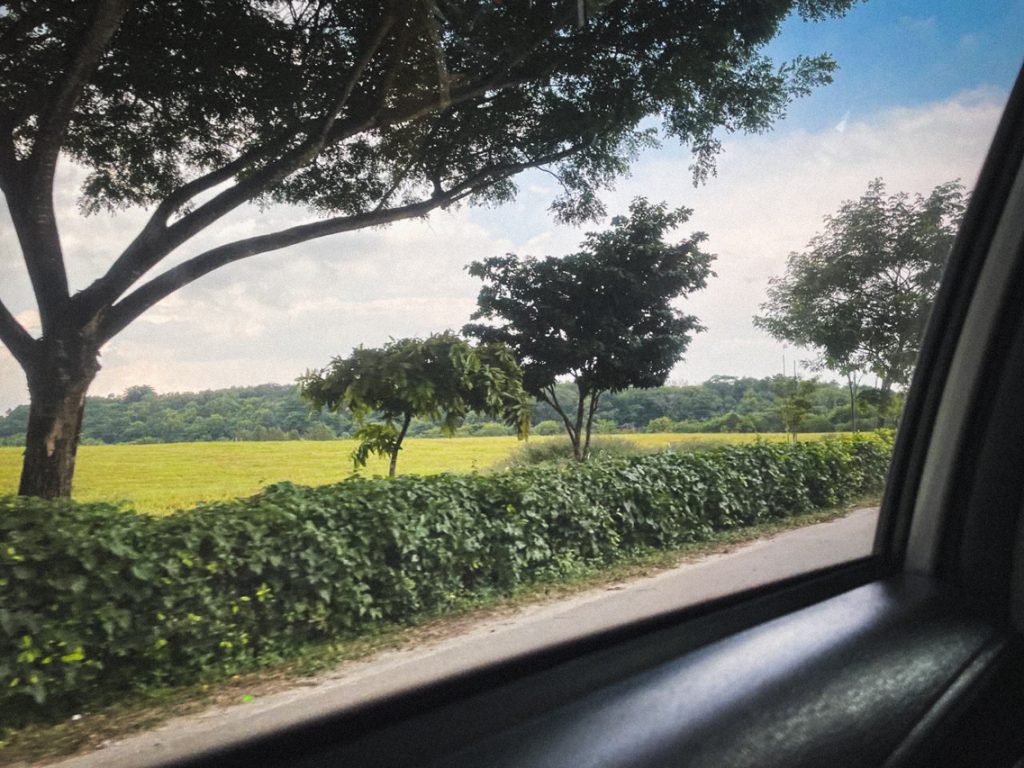
This is my view on the way to work, usually in a Grab or some other form of ride-share as I don’t have my own car. Ironically, I enjoy these rides the most when the roads are empty, but that usually means the COVID situation is getting more severe.
While I’ve gotten used to things like mask-wearing, the increased social restrictions are pretty frustrating. Most of my social circle is made up of other doctors working in different healthcare institutions, and because we’re discouraged from intermingling too much (to avoid a potential spread of the virus across hospitals), I haven’t seen a lot of my closest friends in person for months.
It’s also very frustrating hearing about the cases of discrimination against healthcare workers, some of which have happened directly to my friends. I understand that the public is probably wary that we might be carriers, given the high-risk nature of our work, but it’s still disheartening to be ostracised when all we are trying to do is to get to work and deal with this ever-evolving series of events. Claps for support don’t mean anything when your actions suggest otherwise.
— Shi Hui* is a doctor in a public tertiary hospital. Although she misses the fitness classes she used to go to to relax, she’s grateful for Netflix and her cat.
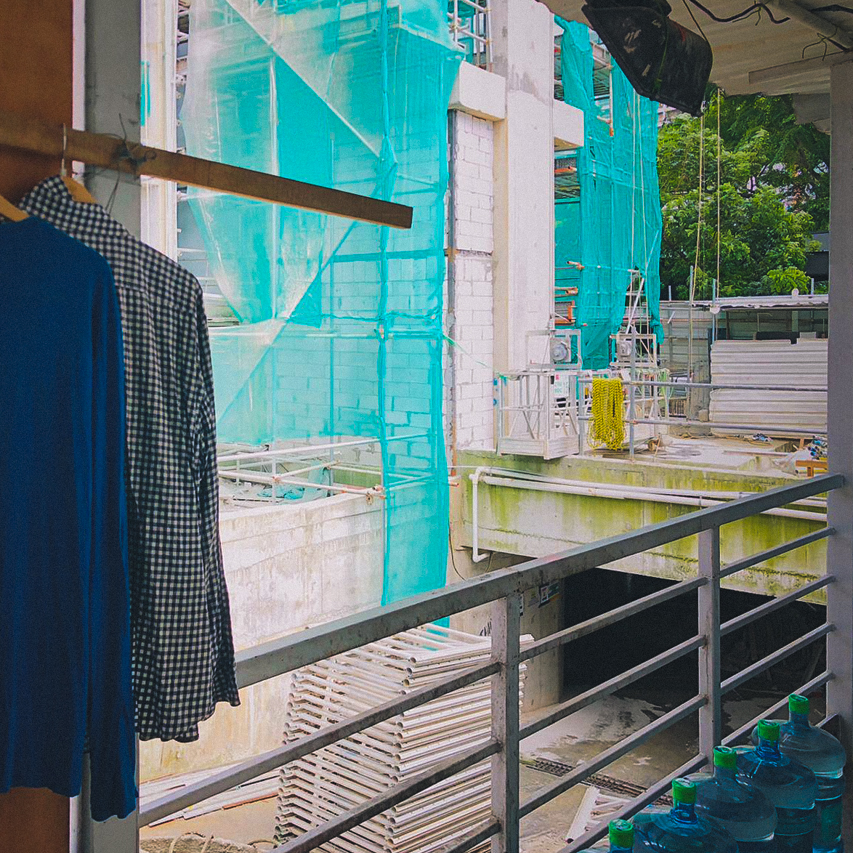
Circuit breaker last year and this year are quite different. This year we [migrant workers] can still work, so it’s better in a sense. But because things were slowly going back to normal, I thought I could go home to visit my family.
In January or February, I told them I’d come home in April. Then in April cases started to appear again, so I said change to August. Now it might be end of year, who knows. I need to make sure I can come back to Singapore as I’m the sole breadwinner, so if I get stuck in Bangladesh, my whole family will be in trouble. But it’s been hard to get them to understand.
I’ve been busy studying for a diploma and taking courses for work. A few weeks ago, I bought Yuval Noah Harari’s 21 Lessons For The 21st Century from Kinokuniya. I’ve only just started, and it’ll take me a while to read it, so maybe Phase 2 will be over by the time I’ve finished.
— Fazley Elahi Rubel is a migrant worker and advocate from Bangladesh. This is the view from outside his room, with his worksite in the background (he lives on site).
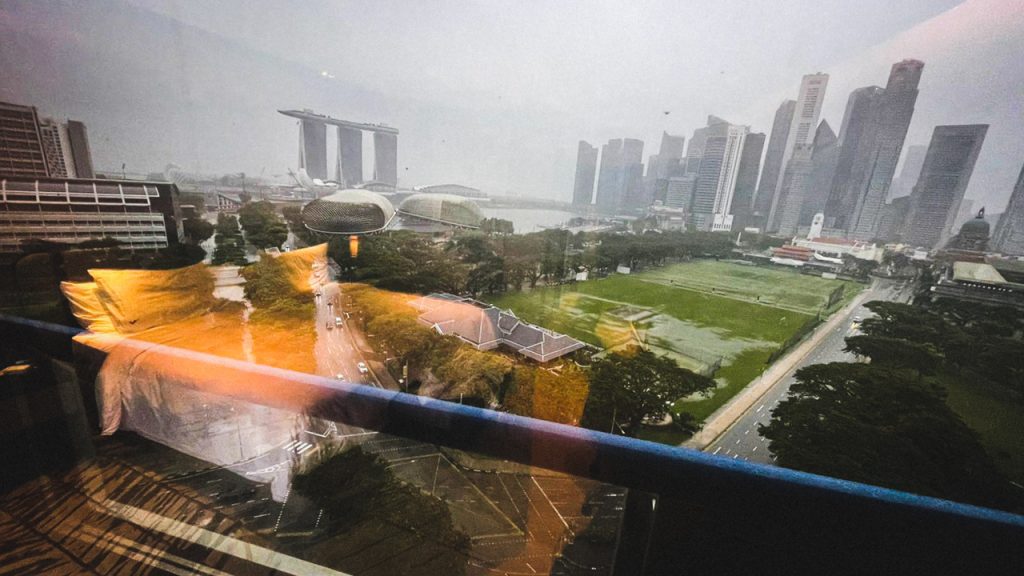
I haven’t thought much about being stuck in quarantine, because I’ve just tried to get on with it. I’ve kept to a routine, and it’s kept me afloat.
In the mornings, I wake up, have breakfast, make the bed, shower, and get dressed. I never stay in a robe or pyjamas; I don’t even get back in bed till after work. But I try to spend as much time away from my screen as I can, so after work ends, I’ll stay on the balcony and listen to a podcast while looking at the view. Right now, it’s this one my friend’s friend made called Sentimental Garbage.
The balcony is the best thing about this room, because I’m one of those people that really loves sunshine and fresh air. I was so lucky to get it because I had this dread on the plane that I was gonna get the worst hotel, like, without a window even. When I got here, I was so happy, I was practically jumping up and down.
— Javid recently flew back from the UK to visit his family. When we spoke, he was on Day 19 of his 21-day quarantine. He had originally expected to spend 14 days in the hotel, but found out on Day 3 that it was going to be extended.
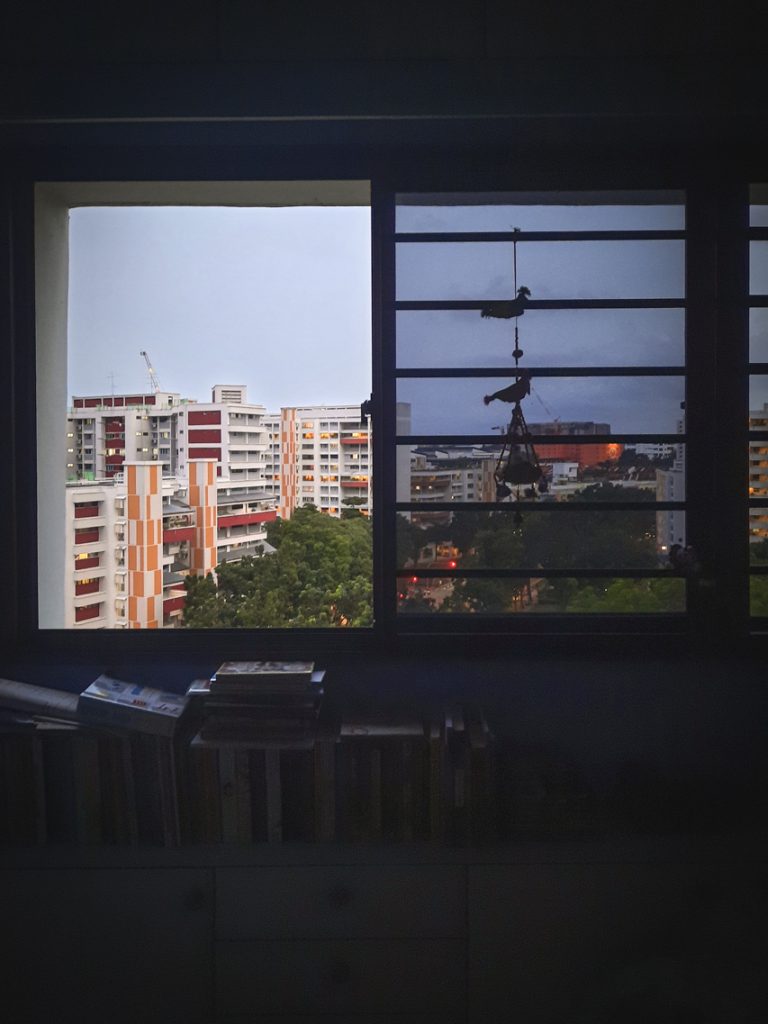
Compared to a couple months ago, I’m definitely more worn out and resigned. It’s partially because a good part of my artistic practice involves performance-making. These last few months, it felt like live performances were slowly becoming possible again, so the sudden curbs hurt. They’re also a keen reminder that the timeline is not as linear as it has felt so far in Singapore, meaning the possibility of delay, cycles, repetition, going back and forth. It’s getting increasingly painful to contain my desire to move and perform. Some days, I struggle to write anything that feels meaningful.
There is also an exhaustion that has endured though, somewhat independently of the changes in Singapore. Palestine, Myanmar, and India have all been on my mind lately. It stems from the helplessness of seeing not just the pandemic but also waves of political violence sweep up so many parts of the world. This exhaustion feels very palpable amongst my peers, a shared and growing grief.
I tend to look out of my bedroom window throughout the day, but especially first thing in the morning, at sunset, and whenever it rains, which I love. I live on a fairly high floor, though, so I mostly look at the sky. I like the simplicity of this perspective. It helps me focus on things like how the clouds shift, especially when most of the time, I’m just busy learning how to live.
— Kia Yee writes poetry, reads books, and makes performances. Lately, she has also been playing Stardew Valley and spending time on Quanmin, a karaoke app.
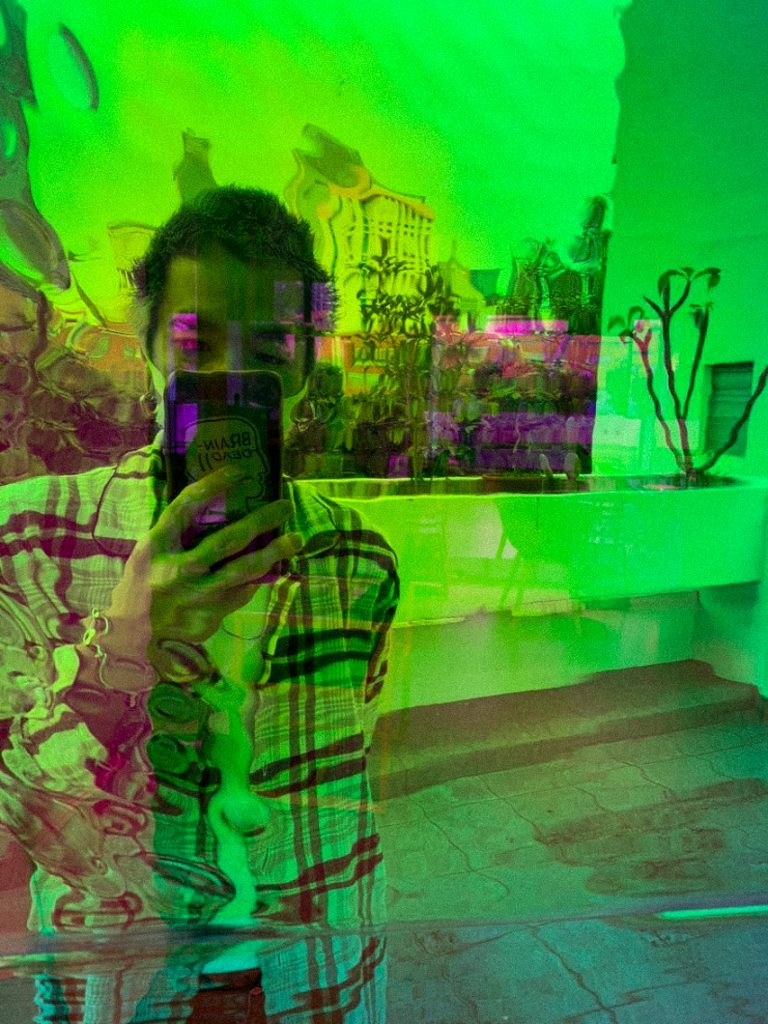
The hair salon I work in has coloured film sheets over the window and balcony doors, so it changes with the sun. During the day it’s green. At nighttime, it’s more pink. After work ends, around 9:00 PM, I sometimes come out here and have a smoke to relax. You can see the Pinnacle at Duxton and the Outram Park area from here.
It’s not so bad compared to last year, when we couldn’t open the salon. That was quite terrible. But I hope I can see my family soon. It was my mum’s 60th birthday last month and I had to miss that. We’re quite close because my parents divorced when I was 15. I did a video call with my family and my sister helped me buy a present for my mum, but I still have to pay her back for that.
— Tomoya, a hairdresser, is from Kanagawa, Japan. He moved to Singapore about four years ago.
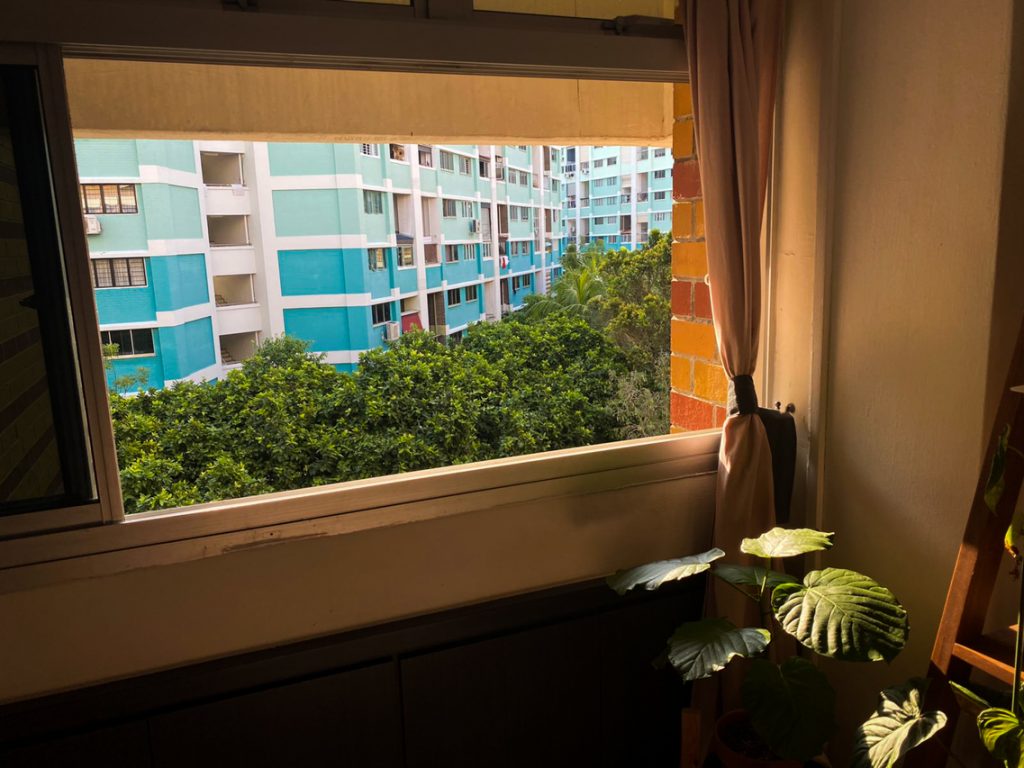
This is my bedroom window, which I tend to look out of throughout the day. The view makes me feel calm and happy. The block opposite my place is this beautiful teal and turquoise ombre, a bit like kueh salat. I also check that my plants are getting enough sunlight. I keep them in the corner near the window, and looking after them gives me a chance to unwind from how busy I usually am.
I’m quite grateful for this semi-lockdown because it forces me to take a break. I love my job, and I’m lucky that it both pays me decently and is stable enough that I don’t have to worry about losing it any time soon. And at least I still get to see a few friends for any emotional support I might need during this month.
— Leticia is a teacher in an international school working with children with learning differences. She also runs a small craft business on the side, enjoys rock-climbing and long boarding, and collects tropical plants.
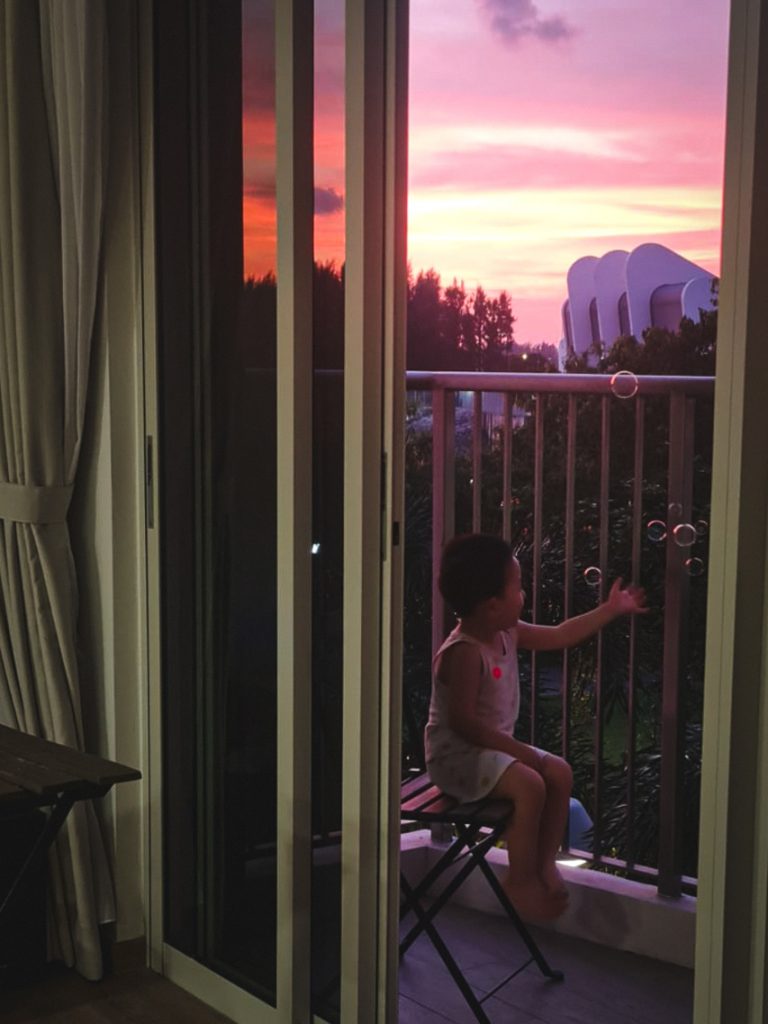
My routine hasn’t changed much since Phase 2. I still wake up at 5:45 AM, wash up, catch the train from my flat in Punggol. The food court’s in Ubi so it takes about an hour to reach. I get there around 7:00 AM and help prepare the food. Lunch is usually the busy hour, but it’s more empty now. I leave around 3 or 4:00pm, and when I get back I spend time with my two-year-old.
The difference is that things are much more stressful. Since Phase 2 started, sales have been around 50% of normal days, but I’m still paying full rental and salaries for now. Delivery platforms aren’t helping much because most of our customers are walk-in. Plus we just moved into this flat a year ago, so there’s the loan. My son. Our helper’s pay. This is the main thing on my mind at the moment.
— Yiping, an F&B entrepreneur, runs three stalls selling cai fan, Korean and Japanese food, and bubble tea in a food court in Ubi.
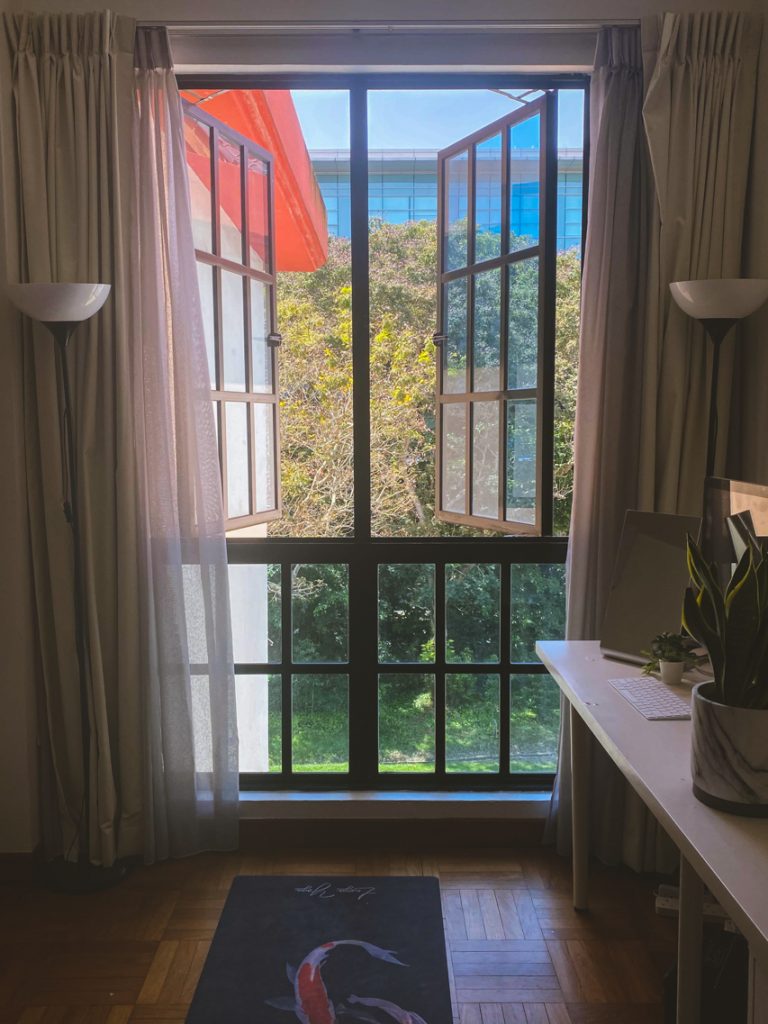
Before the circuit breaker last year, I didn’t realize there was a yellow flame tree outside my window. I thought the flowers were a trick of light from the golden hour. The window is in my bedroom and next to my desk, which I tried to avoid; I couldn’t bring myself to write there. Instead, I spread a yoga mat on the floor, and did sun salutations and read novels with my feet propped up on my chair. When I could no longer avoid my desk, I shut the curtains to cull the daydreams.
On the last day of CB, my brain was blocked. Lockdown had muted my ability to create spontaneously. In frustration, I flung open the curtains and noticed the yellow flame tree in full bloom. Sprouts of ochre showered the canopy, as if they had always been there, urgent and wonderful. I got some words on the page that day.
In Phase 2 (HA), I’ve chained myself to this desk by the window again. The tree is in a period of transition: the bark is brittle and the boughs are bare, but up top, there is a smattering of flowers hanging on for better days. The yellow flame is battered but hopeful; I am the same. Now, I keep the curtains open.
— Zachary H is a writer with RICE. Lately, he has moved his languishing to parks.
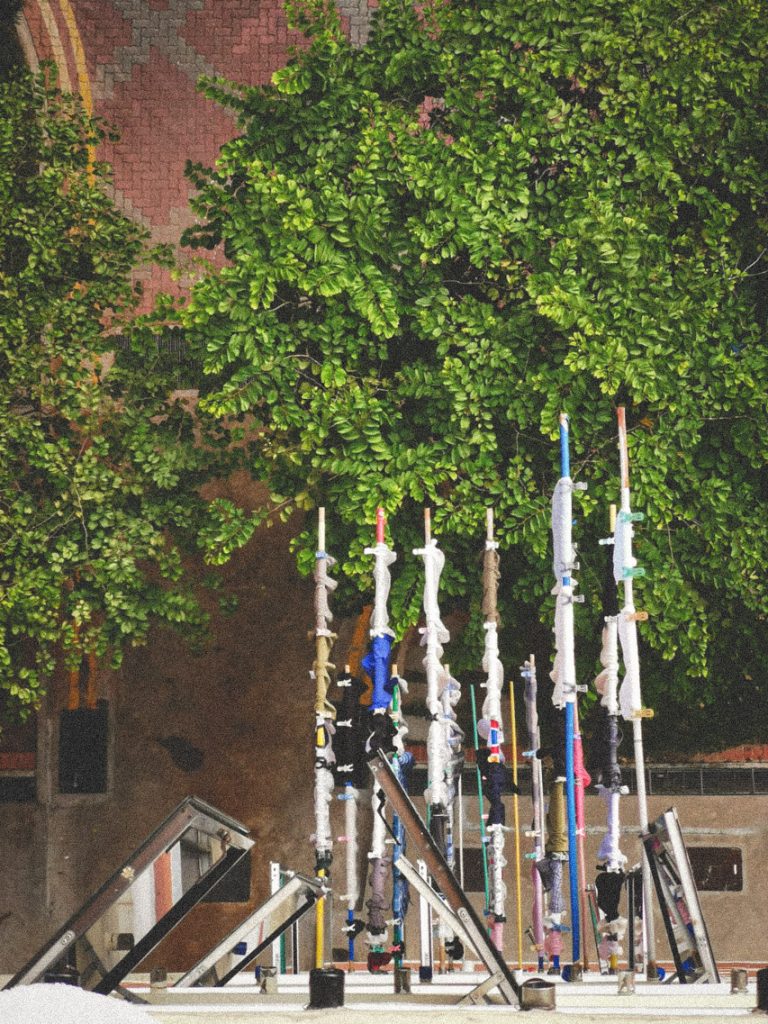
My routine hasn’t had any big changes in Phase 2. I’m still going for my morning walks. I usually wake up at 5 and catch the first train at 5:47, then go to places like MBS or the green corridor. Lately, I’ve been going to the Kallang Riverside area, because I really enjoy the morning peace. Most people around me are running or exercising, but if you see the auntie snapping away with her phone camera, that’s me.
Walking is very healing. I love to look at beautiful things and when I walk, I don’t have to worry so much. I just focus on enjoying the beautiful things around me. I take photos of everything— buildings, sculptures, nature, insects, the sky. Most of the time, I like to look up, because even if you’re in the same spot, the colours and clouds will change. If I take a picture from my window every day, it looks different each time.
I never seem to get bored. After I come back from my walks, I make lunch and go over my photos, which is like getting to enjoy the route all over again. Maybe I’ll watch TV or play games on my phone, cook dinner, and then the day is gone. I don’t know where the time gets to.
Time passes faster now that I’m older. When you’re looking forward to something, time passes fast, when you’re waiting for a bus and you’re in a hurry. You want it to come faster. But when you’re on the bus and want to enjoy it, you want time to slow down.
— Bee Cheng, a retiree, started off documenting her photos on a private Instagram account, but made it public at her son’s urging. She has enjoyed photography for a long time, and jokes that digital cameras are the best invention ever.

